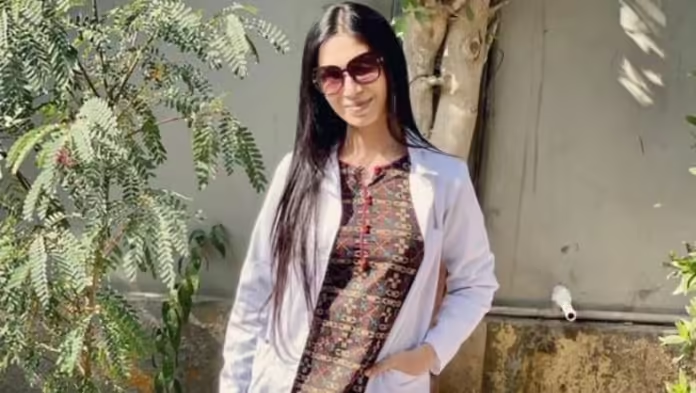Pakistan Medical and Dental Council denied a medical licence to Pakistan’s First Transgender Dr Sarah Gul
In a giant leap towards equality and justice, the Sindh High Court (SHC) raised an eyebrow in Dr. Sarah Gul’s case, who is Pakistan’s first transgender doctor. The court served notices to the Pakistan Medical and Dental Council (PMDC) and other concerned authorities for the failure to grant her medical licence, a landmark in Pakistan’s ongoing struggle for transgender rights.
Dr. Sarah Gul, the first transgender physician to be granted a medical degree in Pakistan, now faces bureaucratic resistance to continuing her career. Her struggle is not only about one person’s fight for acceptance but also an attempt to question how welcoming the institutions of Pakistan are in granting equal opportunities to all its citizens.
A Dream Turned Into a Legal Struggle
It was Dr. Sarah Gul’s dream to become a doctor all the time. Her determination and passion guided her through medical school, though she had to endure massive social stigma as well as economic hardships. Despite fulfilling all the professional and academic demands, though, the PMDC remains yet to award her the medical licence that would allow her to treat patients legally.
This procrastination forced her to approach the courts — an action that accentuates the widespread institutional problems transgender people still face in Pakistan. For one who had been able to reach an unprecedented educational milestone, refusal of a licence is equal to symbolic refusal of her identity.

SHC Steps In: A Ray of Hope
The interference of the Sindh High Court is a ray of hope not just for Dr. Sarah Gul, but for the whole transgender community of Pakistan. By issuing notices to the PMDC and other respondents, the SHC has guaranteed that the case shall be heard and given weightage in light of law and equality.
The court’s emphasis on the matter is a sign that gender identity must never be a hindrance to professional acknowledgment. Legal observers believe that the case would serve as a precedent, compelling regulatory bodies to reconsider their policies and extend inclusivity to professional arenas.
Transgender Representation in Medicine: Why It Matters
Medicine is likely to be one of the most significant fields in which diversity and compassion can truly make a difference. A transgender doctor like Dr. Sarah Gul brings unique knowledge and compassion to a patient group that has been systematically marginalized in society and within health care facilities.
Her existence in the medical field can also inspire other transgender youth to pursue professional studies, shattering cycles of poverty, stigma, and exclusion. Denying her a license not only affects her personally—it sends a demoralizing message to thousands of others who admire her as a trailblazer.
A Test of Equality and Institutional Integrity
Essentially, the Dr Sarah Gul transgender doctor case is about fairness, equality, and human dignity. It asks Pakistan’s institutions to prove that merit and qualifications take precedence over social biases. The role of the PMDC will now be open to judicial review, ensuring transparency and justice.
Human rights organizations, civil society bodies, and the public at large have begun rallying around Dr. Gul, highlighting the importance of acceptance in professional circles to a progressive Pakistan. The ruling in this case has the potential to change how government institutions approach and accept transgender professionals in the future.
A Defining Moment for Pakistan’s Future
As the legal process unfolds, Dr. Sarah Gul’s resolve is a beacon of hope. Her fight is not merely about personal achievement—it is a revolution that seeks equal reverence, applause, and the autonomy to serve humanity.
In case justice prevails, the case could be a turning point in Pakistan’s journey towards equality, proving that brilliance has no gender.
For more updates about this breaking news and other issues of the nation, visit Pakistan Updates.




